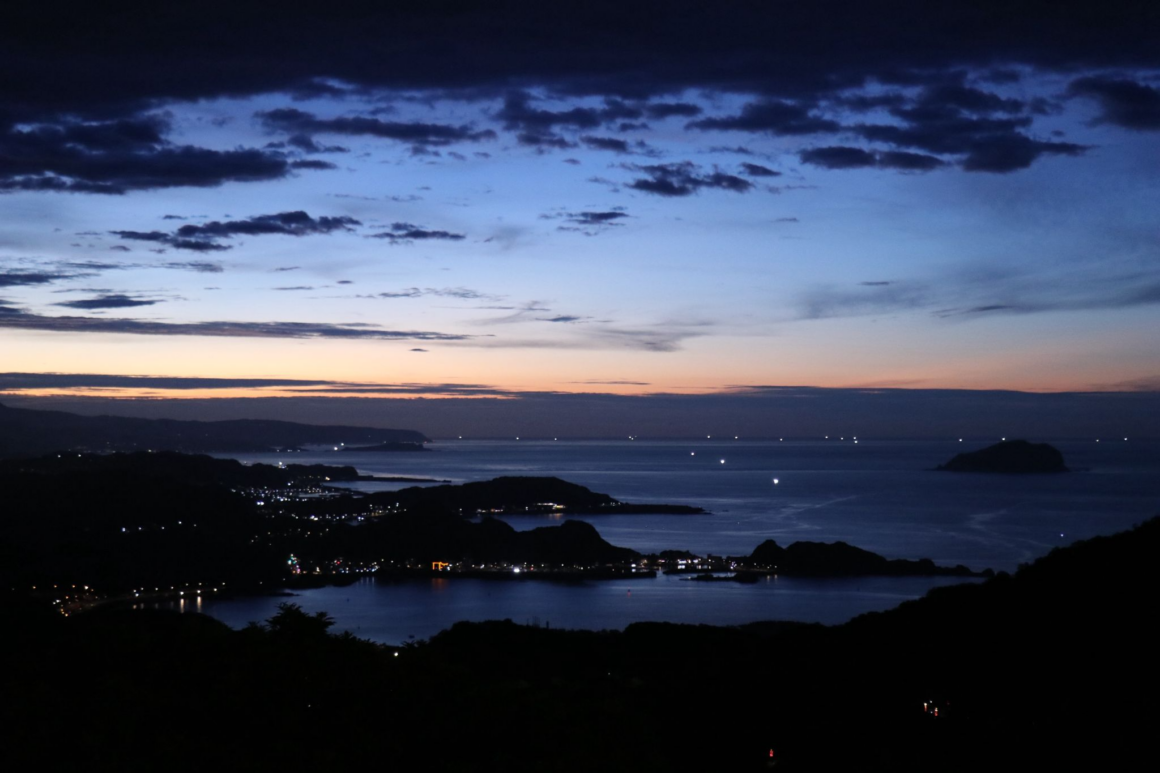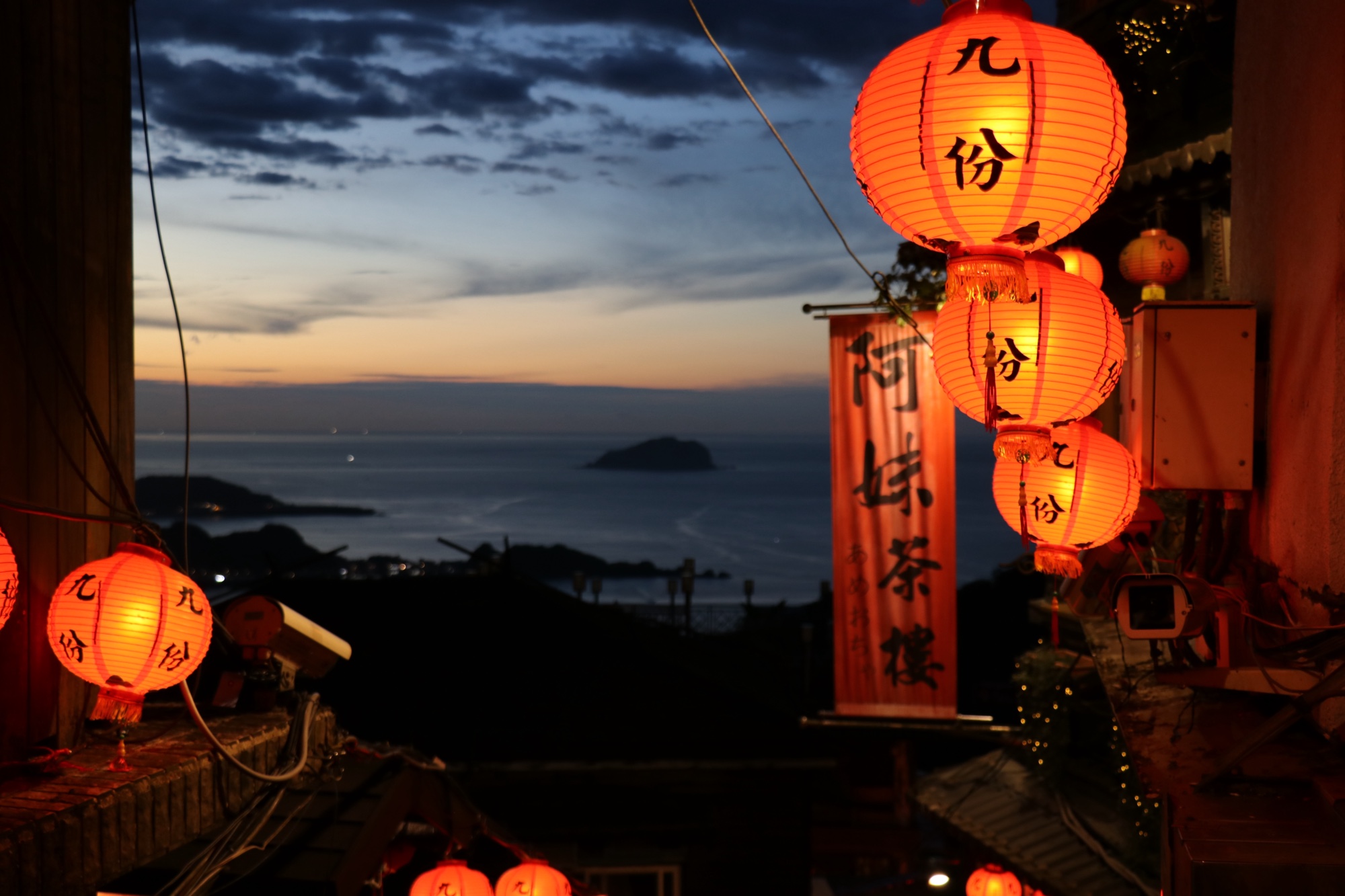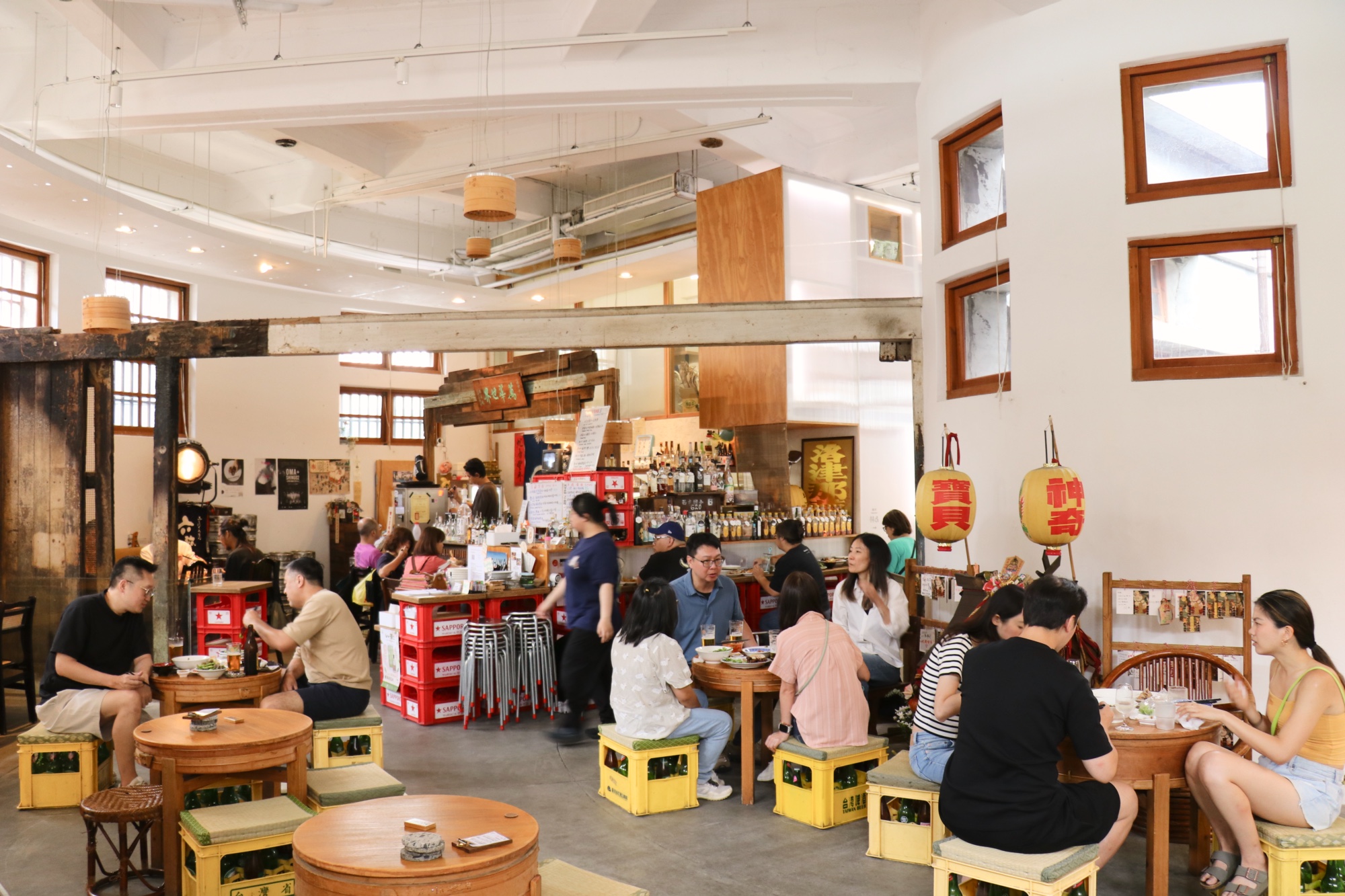Author Levarcy Chen
Photos Levarcy Chen, Golden Bar, M bar, Mountain City Wine Flowers, Daybreak
Editor Julien Huang
Jiufen captivates visitors with its one and only charm during daylight hours, but what happens when the tour buses depart and the red lanterns begin to glow? As twilight settles over the mountain town, a different kind of magic emerges—one that reveals why this former gold mining settlement has evolved into something far more precious than its glittering past.
“The real beauty of Jiufen only shows itself after sunset,” explains Mickey Tseng, who has spent 13 years running the Jioufen Goldore Museum that once belonged to her grandfather. As the day-trippers fade away like morning mist, the town’s authentic character surfaces, inviting those brave enough to stay behind into an intimate dance between the past and the present.
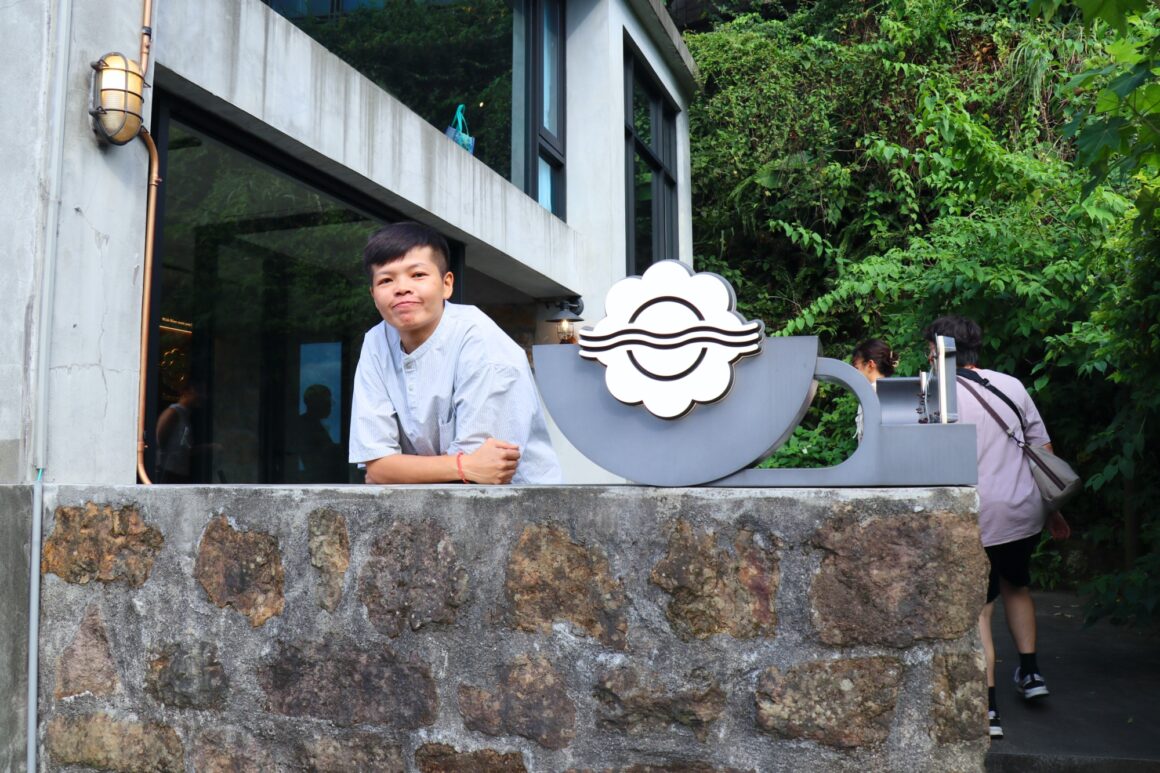
Night Tours: Stories Written in Starlight
When darkness falls over Jiufen’s unique “W-shaped amphitheater” geography, the settlement transforms into a living theater where centuries of stories unfold. Mickey’s evening tours reveal layers of history invisible during the crowded daylight hours—tales of how this mountainside became the beating heart of Taiwan’s gold rush and later, an unlikely artistic pilgrimage site.
Unlike other mining towns where workers descended into darkness with resignation, Jiufen’s miners carried hope in their headlamps. The town’s revolutionary “open mining” system allowed anyone with sufficient capital to rent land and retain 70% of the gold they found. This created what Mickey calls the “gold prospecting spirit”—a sense of possibility that still permeates the narrow alleys today.
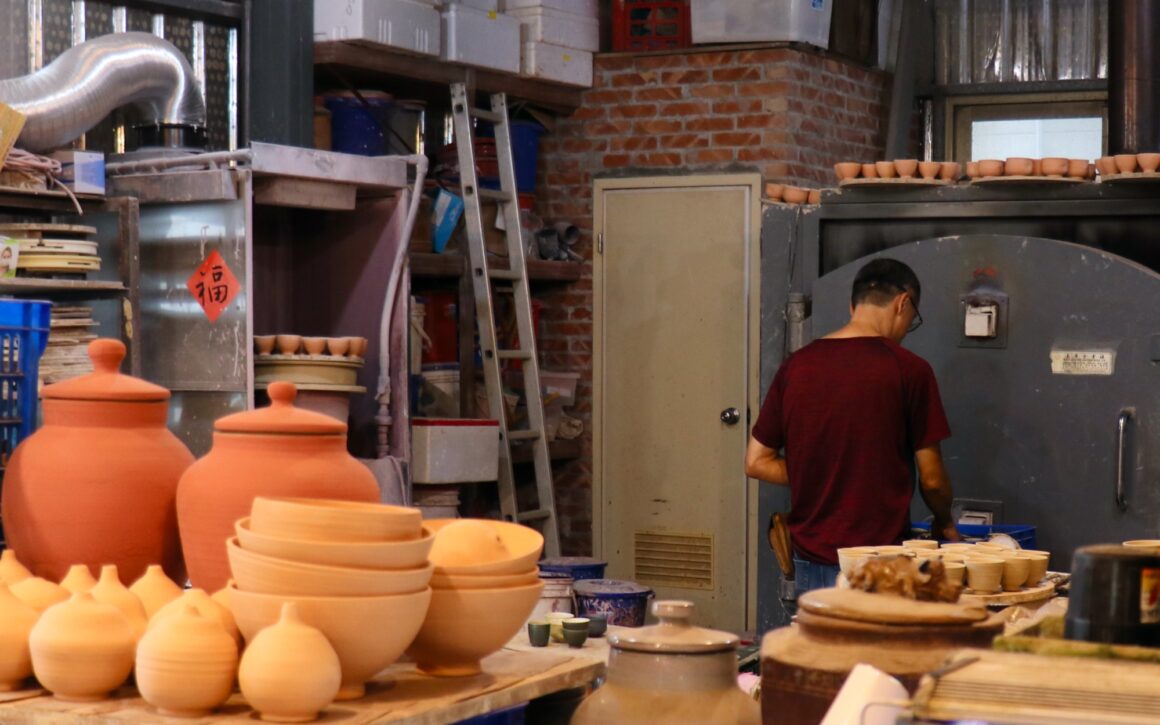
“You weren’t considered a real Taiwanese artist unless you’d painted in Jiufen,” Mickey shares, recounting how the 1950s saw art students from across Taiwan making pilgrimages here with their easels. This artistic renaissance, supported by the Taiwan Yang Mining Company’s (台陽礦業事務所) cultural patronage, nearly transformed Jiufen into Taiwan’s answer to Montmartre. That creative DNA still flows through the town’s veins, visible in everything from the hand-forged art created by a 60-year-old local grandfather using recycled cans and nails to the carefully curated aesthetics of its modern establishments.
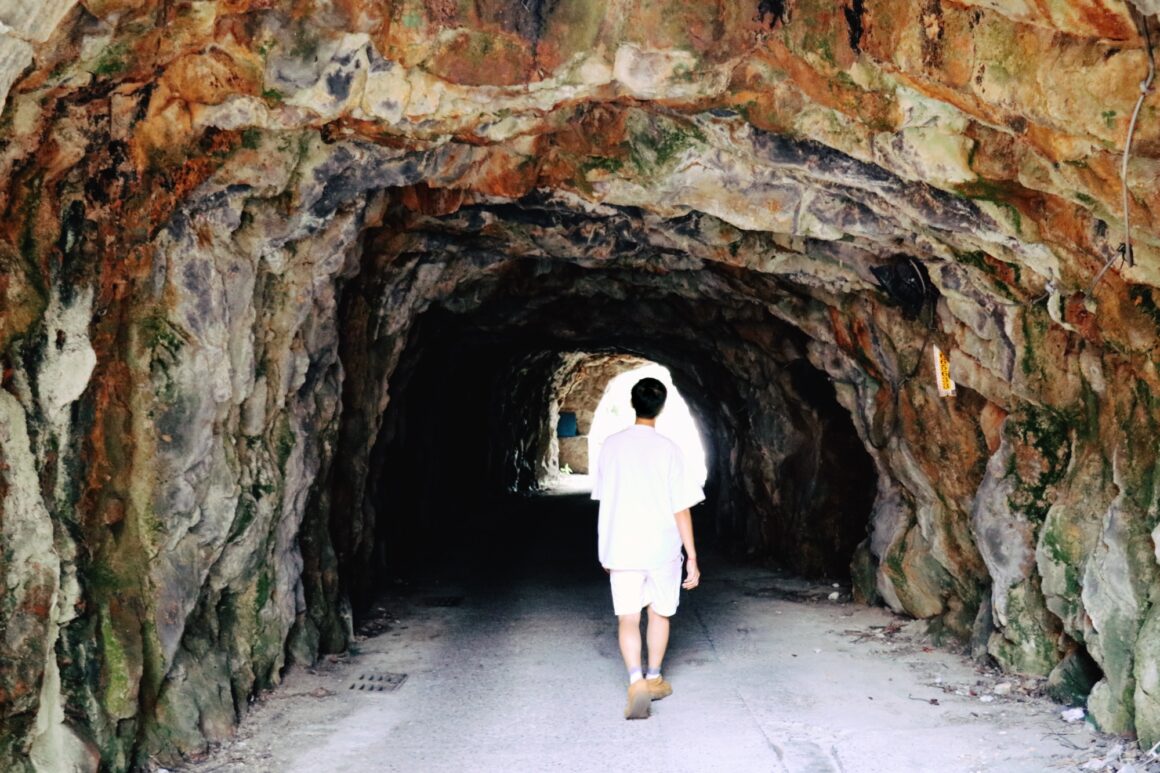
The tours wind through the “Qingbian Road (輕便路)”—literally the “flattest road”—where hand-pushed rail carts once carried precious cargo such as coal, gold, and dreams. Mickey’s storytelling brings the mountain alive with tales of ice-cold mine shafts that seep with natural groundwater, numerous ghost stories, and the 1917 stone-carved Guanyin statue, whose reputation for answering prayers keeps incense burning late into the night.
Must-Visit Cafés: Where Time Stands Still
Samba Cafe (山巴咖啡)
Finding Samba Cafe is an adventure in itself—tucked away in such a discreet location that visitors must venture to the other side of town and pass through a tunnel to discover it. This journey feels remarkably like stepping into the animated world of “Spirited Away”—passing through the tunnel transports you into a completely different world where unexpected wonder awaits.
The café occupies a beautifully restored vintage house that radiates cozy warmth through its thoughtful preservation of original architectural elements. What makes Samba truly special is its impressive collection of paintings by a Taiwanese artist Hsi-Hsun,Chiu (邱錫勳, penname Samba) who creates striking works using asphalt as a medium—a fitting artistic choice for a mountain town built on mining and industry.
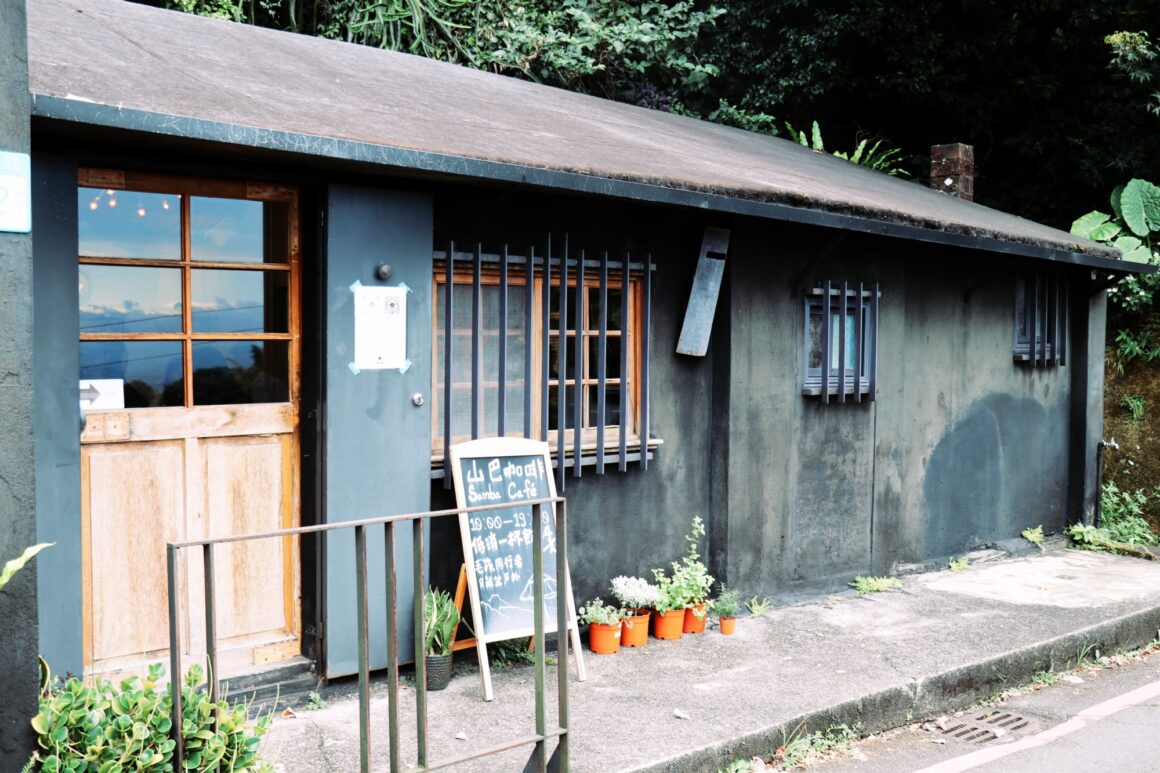
The real magic happens as sunset approaches. Like a daily ritual, patrons naturally migrate from the intimate indoor spaces to the wide, spacious outdoor platform that faces west. Here, with steaming cups in hand, visitors gather to witness the sun paint the sky in shades of gold and amber—the same light that once drew fortune-seekers to these very mountains. This spontaneous evening migration creates an impromptu community of sunset watchers, all drawn together by Jiufen’s most reliable daily performance.
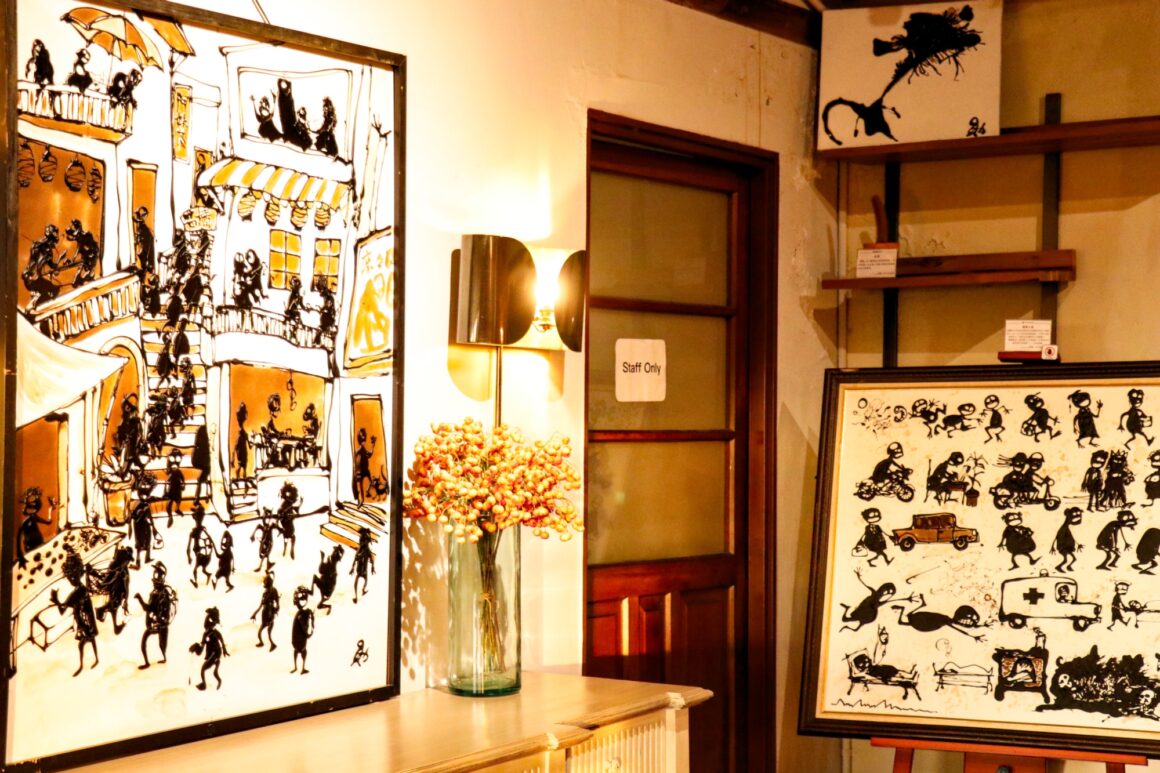
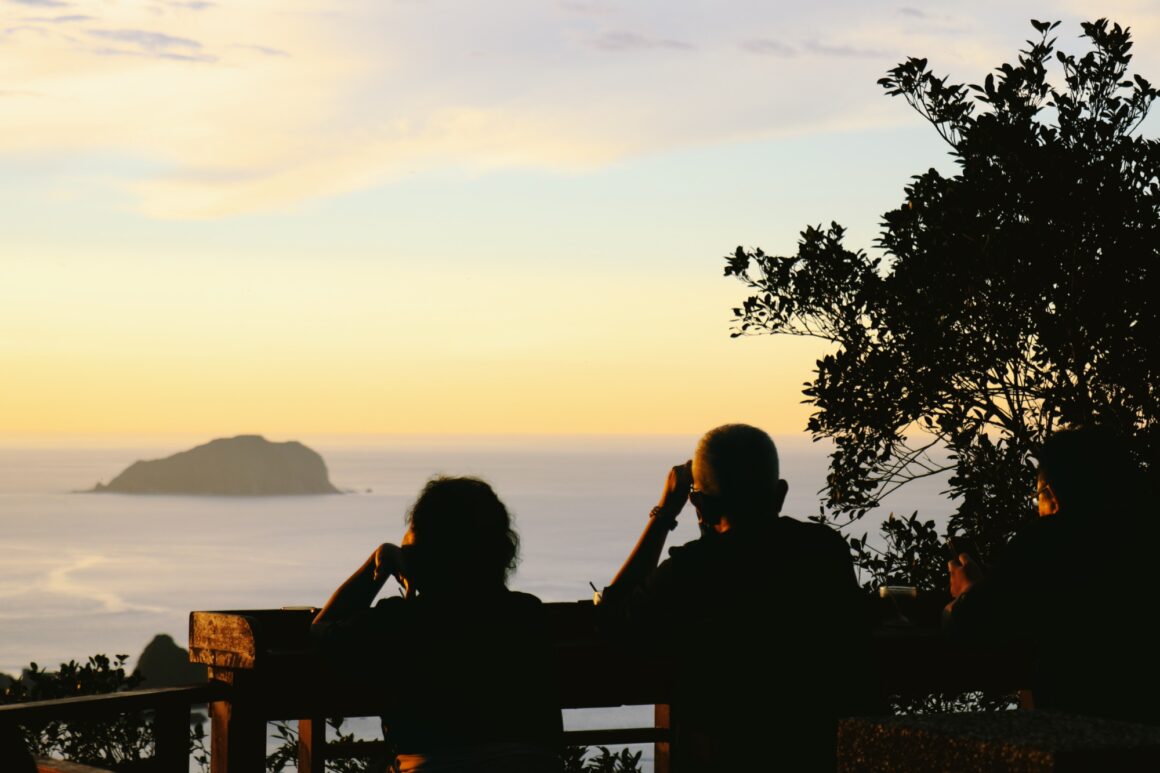
山巴咖啡 (Samba Cafe)
📍No. 352-1, Qingbian Rd, Ruifang District, New Taipei City, 224
✍🏼Online reservations needed with a deposit of $200/ person
🕰️Hours: Mon-Sun 10:00-19:00
💰Average spend: NT$200-400
Hima Café (暇・咖啡)
Perhaps no café better captures Jiufen’s evening essence than Hima, whose name derives from the Japanese concept of “閒暇” (ひま, meaning leisure). The logo artfully combines imagery of sunrise and sunset above sea level with sunflower motifs—a visual poem about time’s passage that mirrors the café’s temporal philosophy.
The architecture seamlessly blends Japanese wabi-sabi aesthetics with contemporary design elements, while subtle gold mining references pay homage to the town’s heritage. Ironically, the barista confesses to being too busy to fully appreciate the stunning window views, calling such luxury “too extravagant.” This paradox perfectly captures modern Jiufen—a place where beauty is abundant yet precious, accessible yet fleeting.
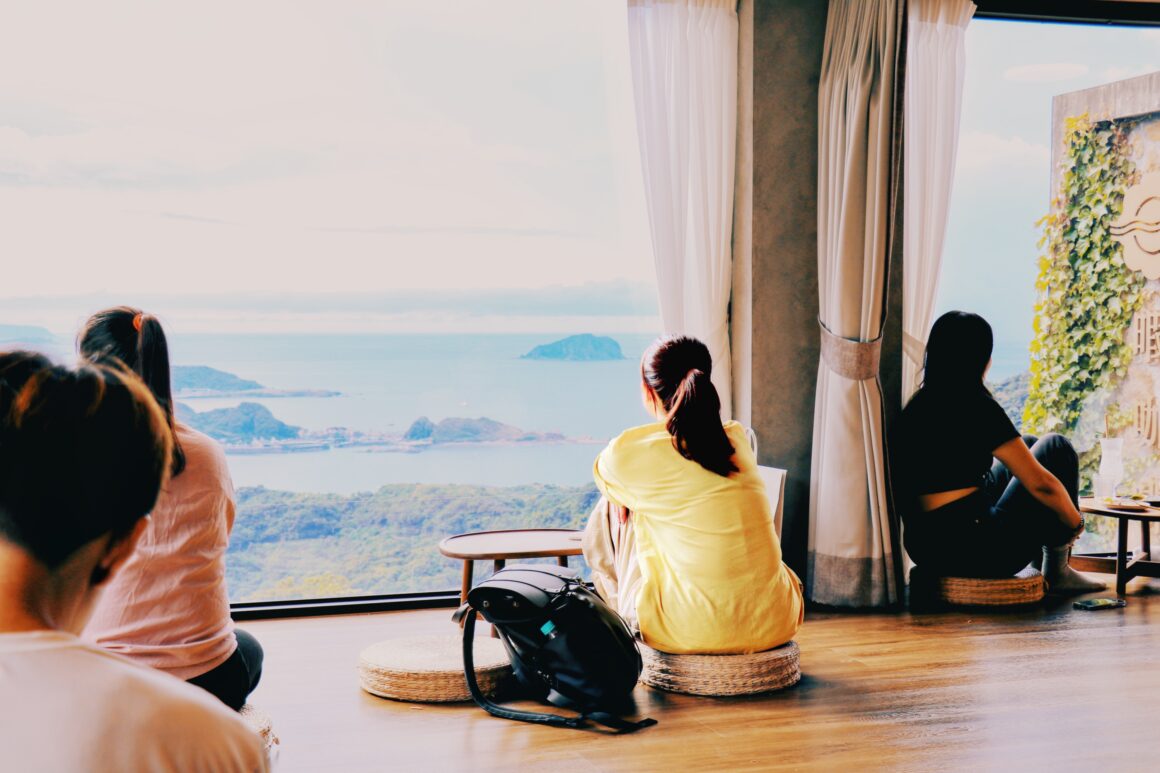
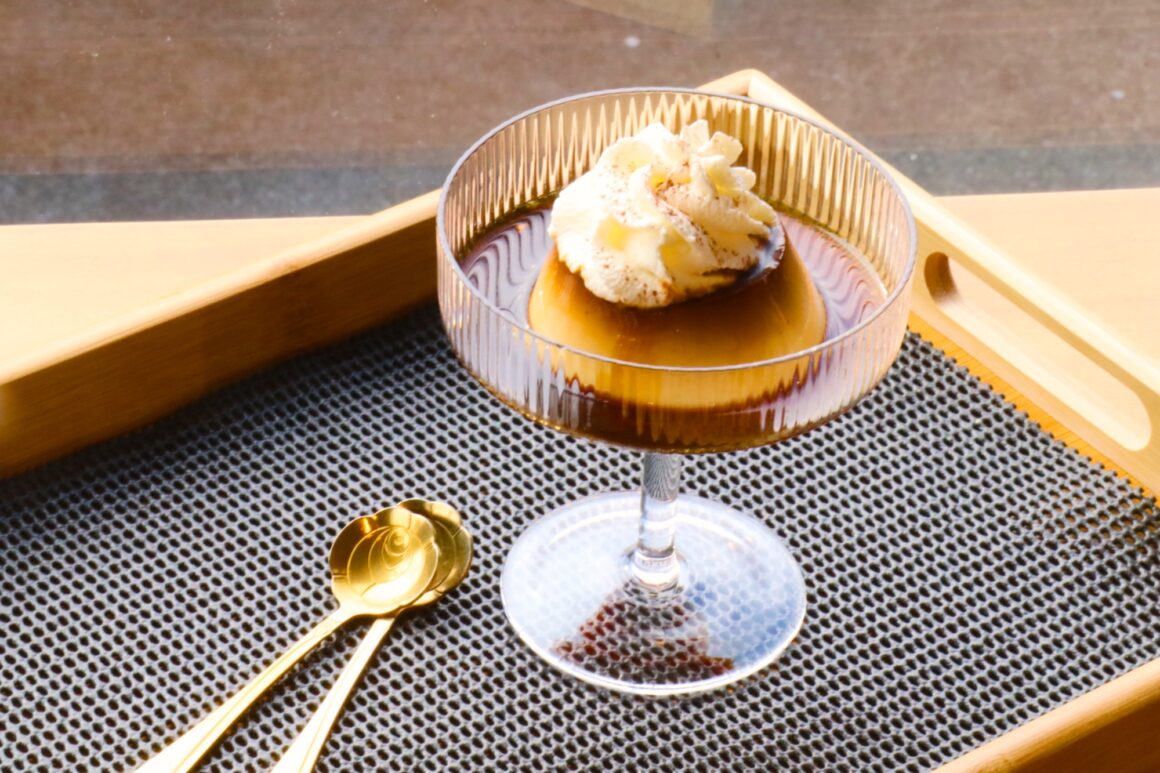
Hima Café (暇・咖啡)
📍No. 18, Shuqi Rd, Ruifang District, New Taipei City, 224
✍🏼No reservation service. Walk-ins welcome. ⚠️Best arrive before 16:00
🕰️Hours: Mon- Sun 11:00-18:00
💰Average spend: NT$250-450
Yeshi (野事)
Yeshi occupies the former work studio of a remarkable artist Ta-Hua, Hu (胡達華) who didn’t begin his creative journey until age 60, yet has thrived ever since. His extraordinary artwork demonstrates mastery of metallic materials and intricate nailing techniques—pieces that create striking impressions from a distance, their forms bold and defined. But step closer, and you’ll discover the familiar fragments of daily life transformed: aluminum drink cans, plastic wrapping paper, and other discarded materials reborn as art through skilled hands and patient vision.
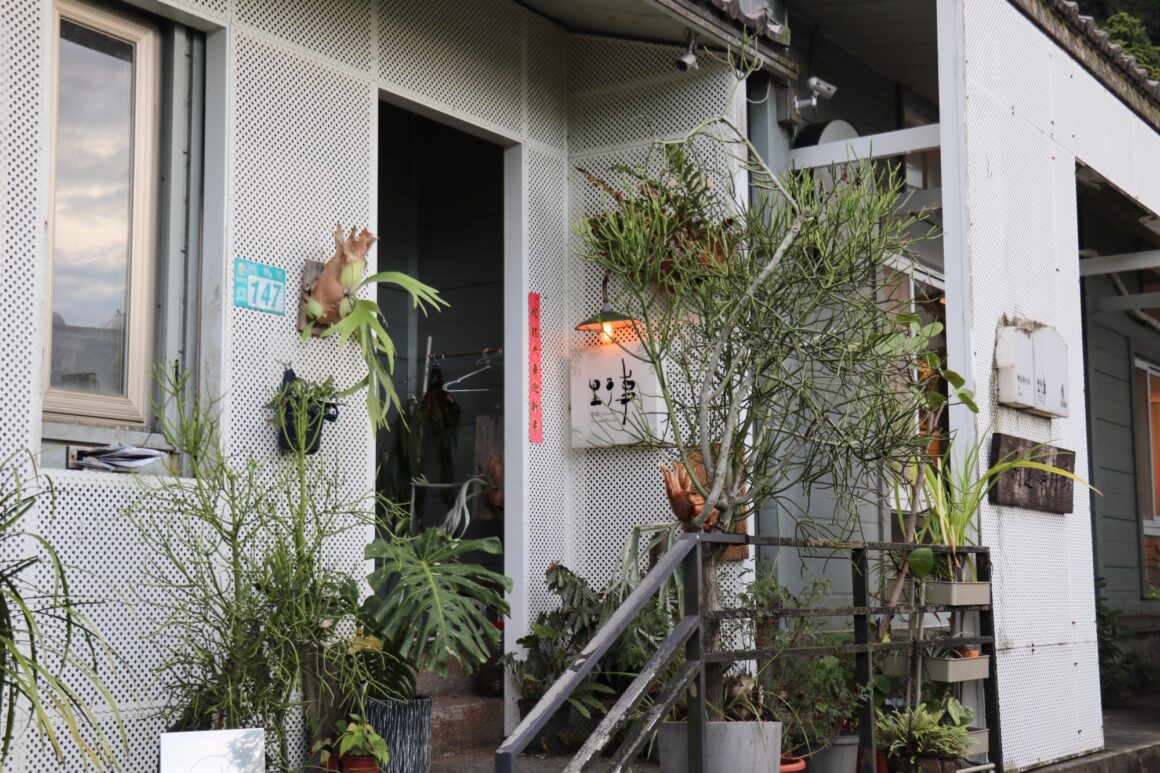
Beyond its artistic heritage, Yeshi distinguishes itself by offering local herbal teas that conventional cafés rarely provide. These traditional brews connect visitors to old wisdom—in earlier times, herbal tea was believed to heal the energy, its recipes passed down through generations. Though modern medicinal development has led many to forget these lost traditions, Yeshi preserves this old knowledge, offering both physical refreshment and a taste of Taiwan’s healing heritage.
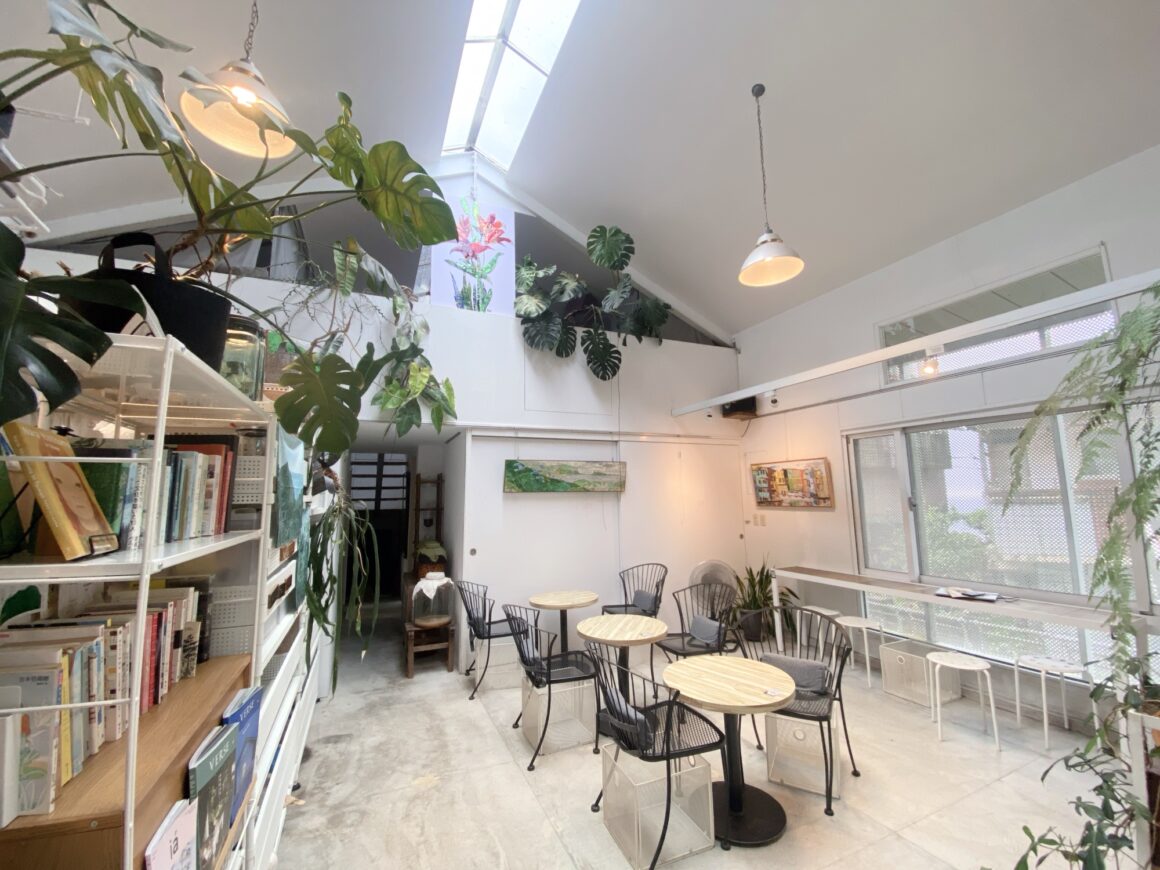
Yeshi
📍No. 147, Qingbian Rd, Ruifang District, New Taipei City, 224
✍🏼No reservations service. Walk-in friendly.
🕰️Hours: Wed- Sat 11:00-18:00 | Sun 11:00-17:00| Mon- Tue off
💰Average spend: NT$180-350
Bars for the Night: New Gold Prospectors
M Bar
As Jiufen’s first and oldest bar, M Bar holds the distinction of pioneering the mountain town’s nightlife scene. This trailblazing establishment welcomes visitors with three lovely in-house cats who serve as unofficial greeters, creating an instantly relaxed atmosphere that feels more like visiting a friend’s home than a typical bar.
The venue offers spectacular window views that showcase Jiufen’s dramatic landscape, while the rooftop area provides an even more immersive experience for those seeking a closer connection to nature. Here, under the open mountain sky, guests can enjoy their drinks while surrounded by the sounds of the night—a perfect blend of urban sophistication and natural serenity that represents the new generation of “gold prospectors” who pan for connections and memorable experiences rather than precious metals.

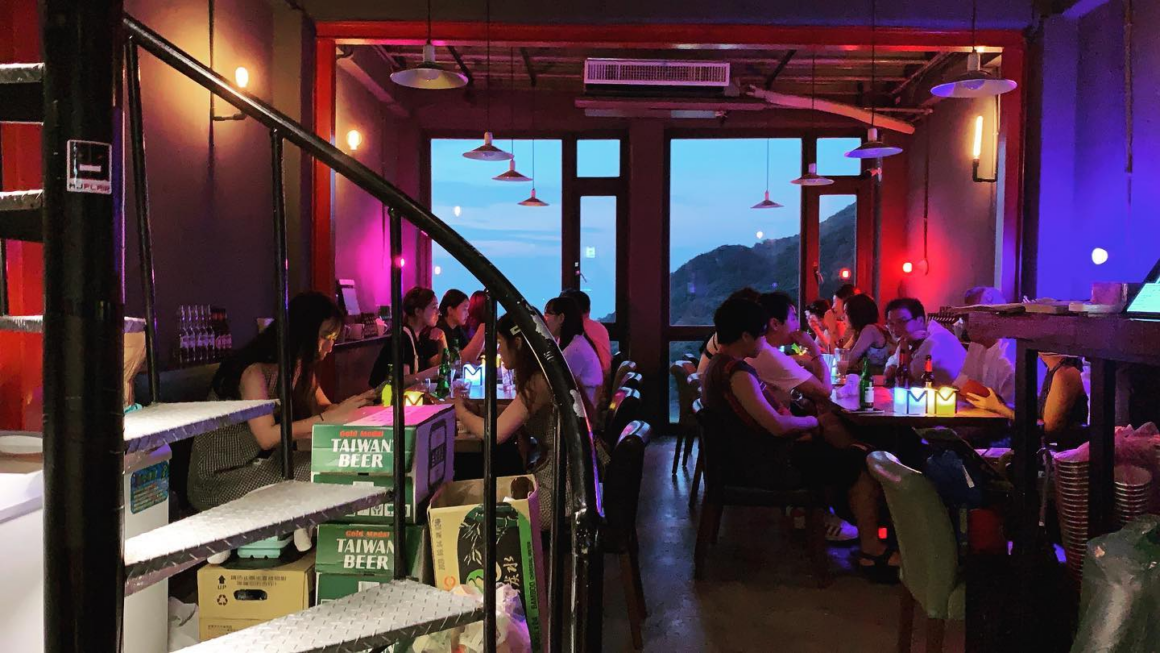
📍No. 280, Qingbian Rd, Ruifang District, New Taipei City, 224
✍🏼Reservations: Walk-in friendly | reserved through 📞:0909678785
🕰️Hours: Mon- Sun 17:00-22:30 | Sat 17:00-23:00
💰Average spend: NT$400-800
Golden Bar (逸茶酒室)
Located beside Jiufen Old Street’s observation deck, Golden Bar is operated by the team behind the renowned Something Easy Inn, one of Jiufen’s most celebrated accommodations. This mountain town tavern specializes in original Taiwanese cocktails, developing unique drinks that showcase Taiwan’s distinctive character and spirit. The bar carefully curates local craft beers and creates signature cocktails using indigenous ingredients, serving as a liquid ambassador for Taiwanese culture high in the mountains.
With a name that directly nods to Jiufen’s golden heritage, this establishment continues the town’s tradition of hopeful gathering places where fortunes—social rather than financial—are made and shared. Here, each sip tells a story of Taiwan’s evolving identity, from mining town to cultural destination.
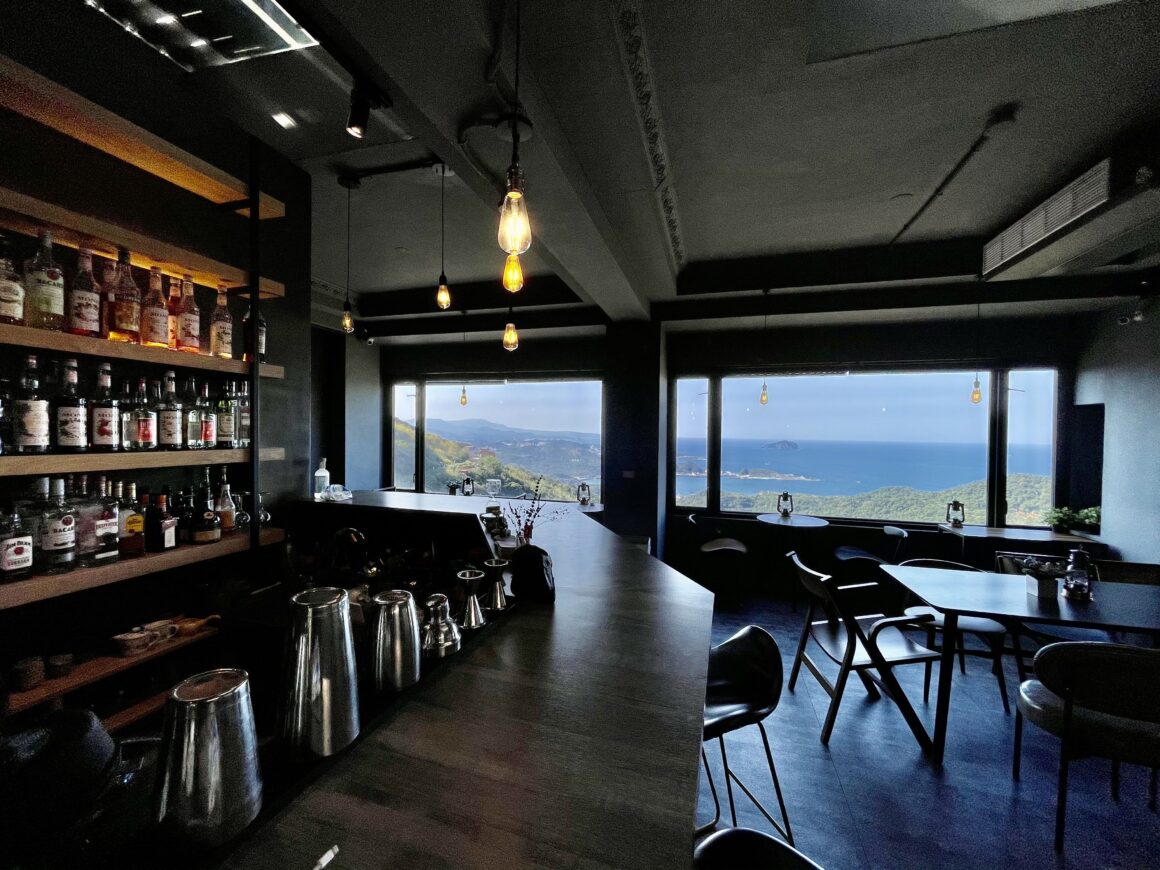
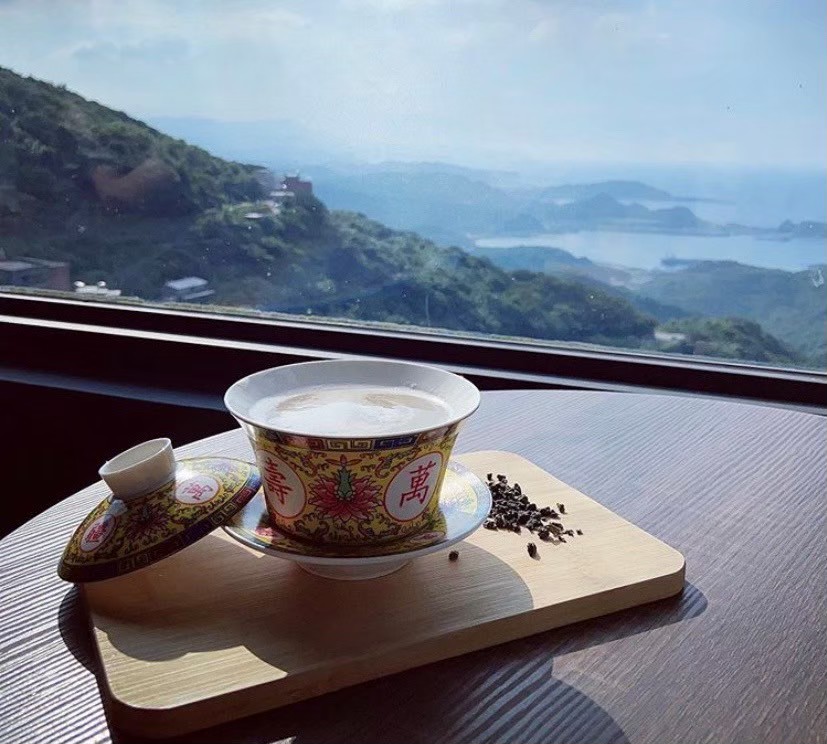
📍No. 190, Jishan St, Ruifang District, New Taipei City, 224
✍🏼Reservations: Walk-in friendly.
🕰️Hours: Mon- Sun 14:00-22:00
💰Average spend: NT$350-700
Mountain City Wine Flowers (山城酒葩)
The poetic name suggests the sophisticated evolution of Jiufen’s social spaces, where wine flows like mountain streams and conversations bloom like wildflowers on the hillsides.
These venues extend Jiufen’s hospitality well beyond typical day-trip hours, with many staying open until 10-11pm, creating the social infrastructure necessary for the town’s transformation from day-trip destination to overnight experience.
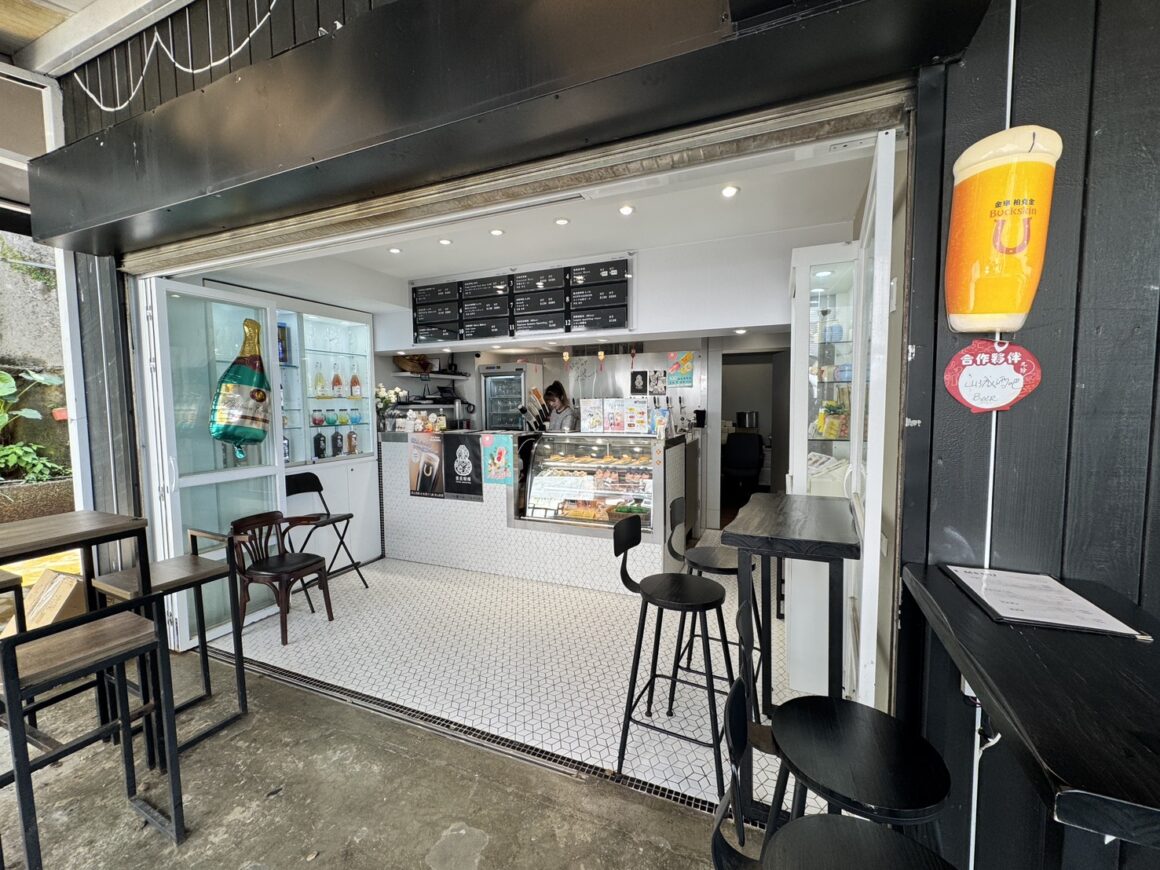
📍Location: No. 24, Shuqi Rd, Ruifang District, New Taipei City, 224
✍🏼Reservations: Walk-in friendly
🕰️Hours: Mon- Sun 11:00-20:00
💰Average spend: NT$300-700
Accommodation: Daybreak
After exploring Jiufen’s cafés and bars, finding the right place to stay becomes essential—both for practical reasons after an evening of drinks and to fully appreciate the beauty of Jiufen after dusk. The magic doesn’t end when the bars close; it transforms into something even more intimate as the town settles into its nocturnal rhythm.
Over the past three decades, Jiufen’s accommodation scene has transformed dramatically from the spontaneous “knock on doors asking for rooms” approach to sophisticated experiences that rival designed hotels. This evolution accelerated with Taiwan’s introduction of the two-day weekend, which created demand for short overnight escapes that could offer both comfort and an authentic local connection.
Daybreak represents a heartwarming collaboration between a daughter and father who opened their doors just three years ago, combining their passion for design with extensive hotel management experience to create something truly special. This modern sanctuary caters thoughtfully to both couples and families seeking a refined mountain retreat.
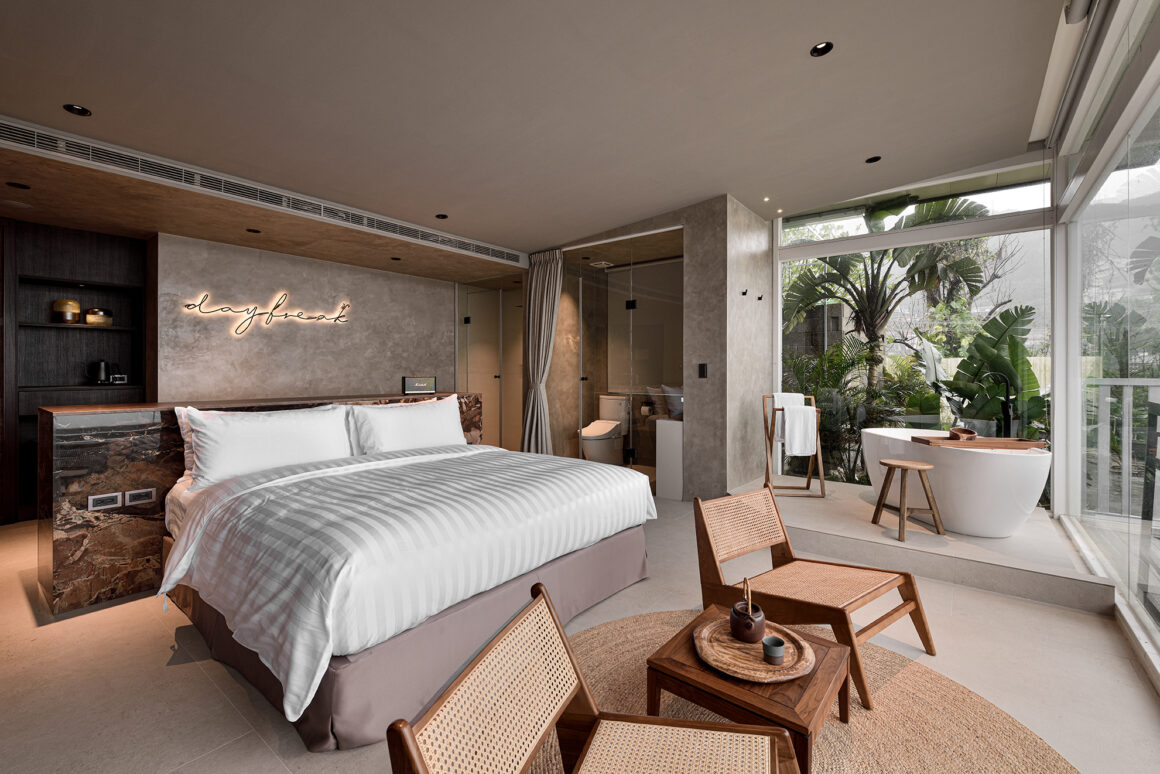
The accommodation’s crown jewel is its grand windows that frame Jiufen’s ever-changing landscape like a living artwork. The interior design philosophy centers on carefully selected furniture in neutral grayish undertones, complemented by warm lighting that naturally soothes travel-weary souls. This creates an atmosphere that invites guests to slow down—whether sipping beers while watching the harbor lights twinkle below, or soaking in a hot bath with panoramic views stretching to the horizon.
The experience of waking up in Jiufen, before the buses arrive and after the night has worked its quiet magic, offers visitors a rare glimpse into the town’s authentic rhythm—the same pace that miners, artists, and dreamers have followed for generations.
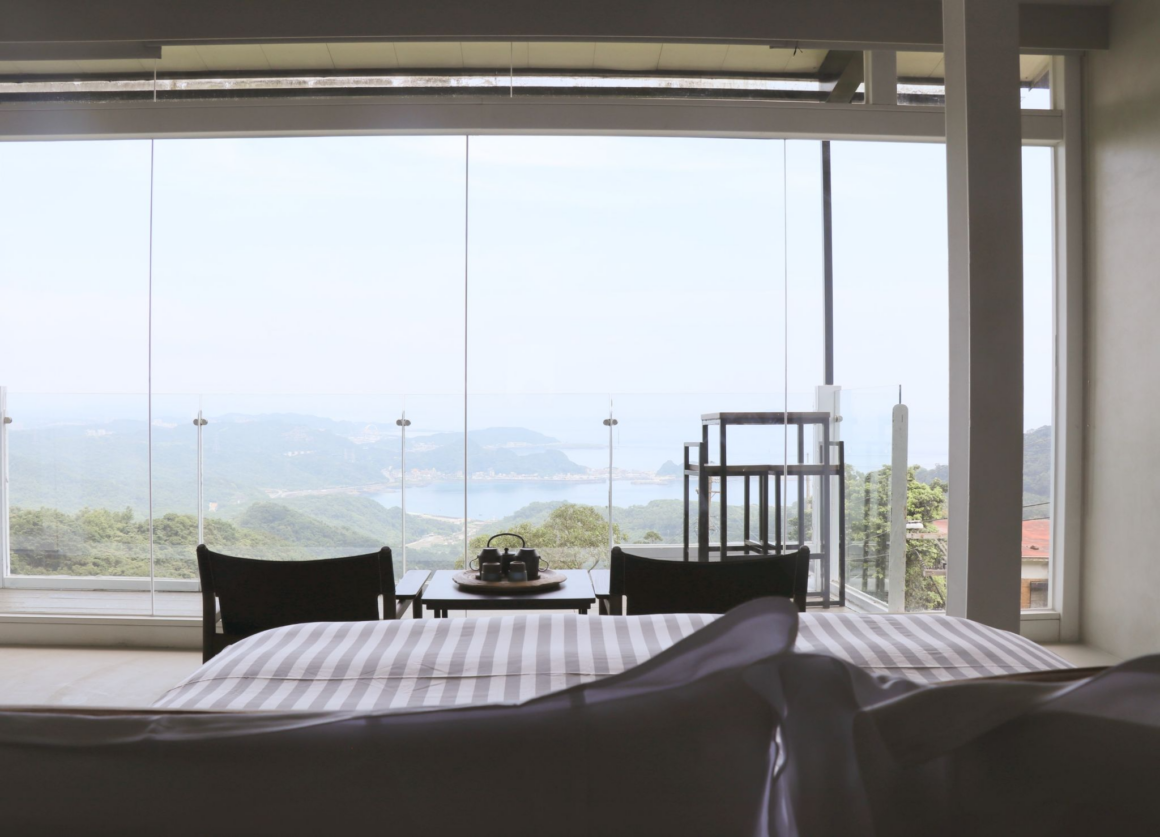
📍No. 49, Shuqi Rd, Ruifang District, New Taipei City, 224
✍🏼 Reservation: Official Website
📞 Phone: +886 2 2496 0988
⭐️ How to get there: Take Bus 1062 from Zhonghsiao Fuxin or Bus 965 from Ximen and get off at Jiufen Police Station
The Art of Slowing Down
Mickey’s philosophy of “multiple coexistence” in tourism speaks to a deeper truth about Jiufen’s nighttime appeal. To truly appreciate the feeling that nowhere else can provide, visitors must resist the rush and surrender to the mountain’s slower tempo. This isn’t simply about extending a day trip—it’s about allowing Jiufen to reveal its layered personality through the intimate lens of darkness and dawn.
The town’s unique magic doesn’t emerge from any single element—not the historic mining tunnels, the red lanterns, or the harbor views alone. Instead, it crystallizes in the spaces between: the quiet conversations in late-night cafés, the gentle clinking of glasses in mountain bars, the soft footsteps on stone paths illuminated only by traditional lanterns, and the profound satisfaction of watching sunrise paint the same mountains that once promised gold to generations of hopeful miners.
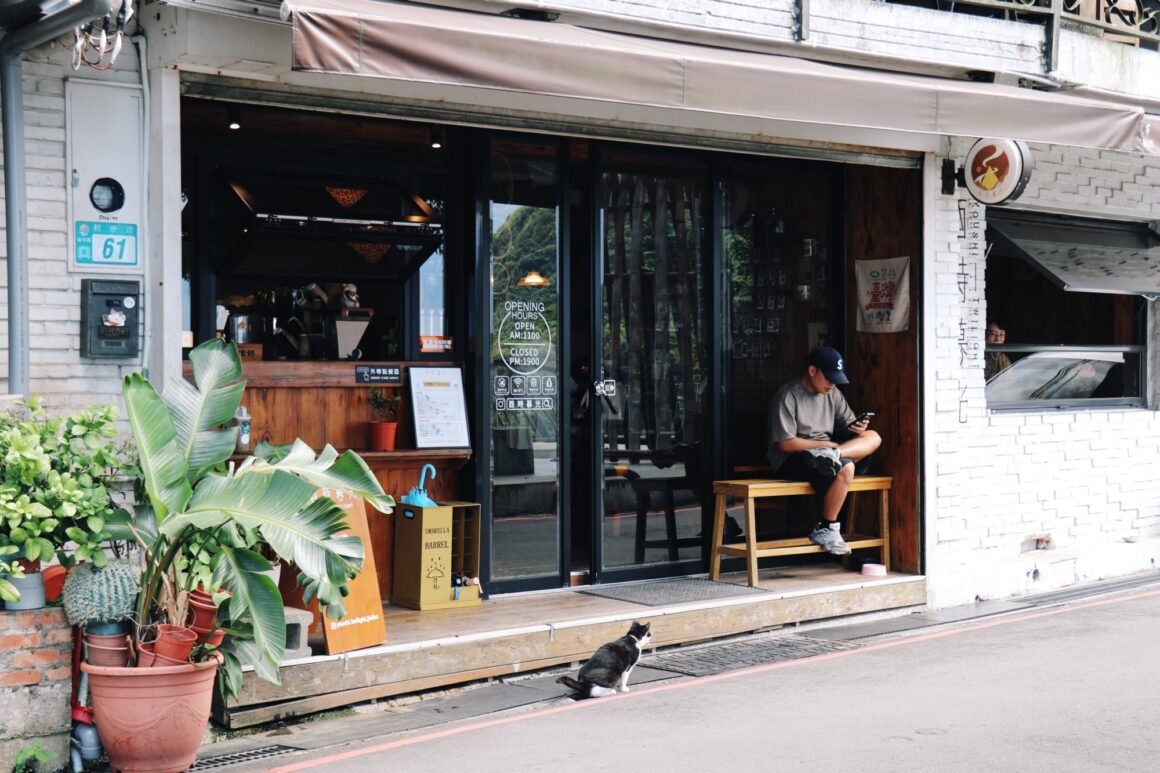
In staying overnight, visitors join a tradition stretching back over a century—people drawn to this mountain not just for what they might extract from it, but for what it might reveal about themselves. The real treasure of modern Jiufen isn’t buried in its hillsides; it’s discovered in the willingness to slow down, stay late, wake early, and allow this extraordinary place to work its quiet transformation on anyone patient enough to receive it.
As Mickey puts it, her goal is to give visitors “an extra filter” through which to see Jiufen. That filter, it turns out, works best in the gentle light of lanterns and the golden hour of dawn—times when the mountain town shares its deepest secrets with those who choose to listen.
